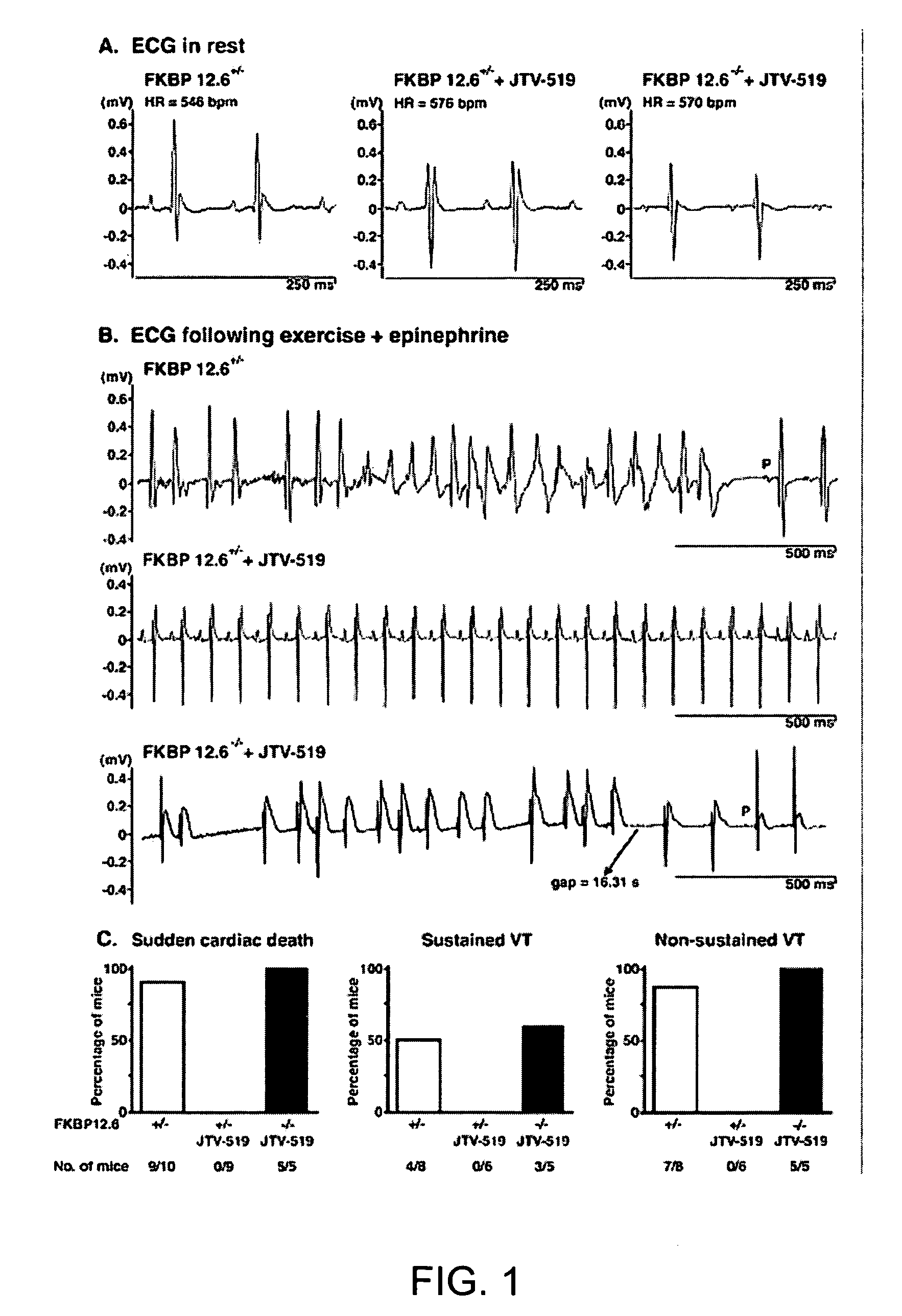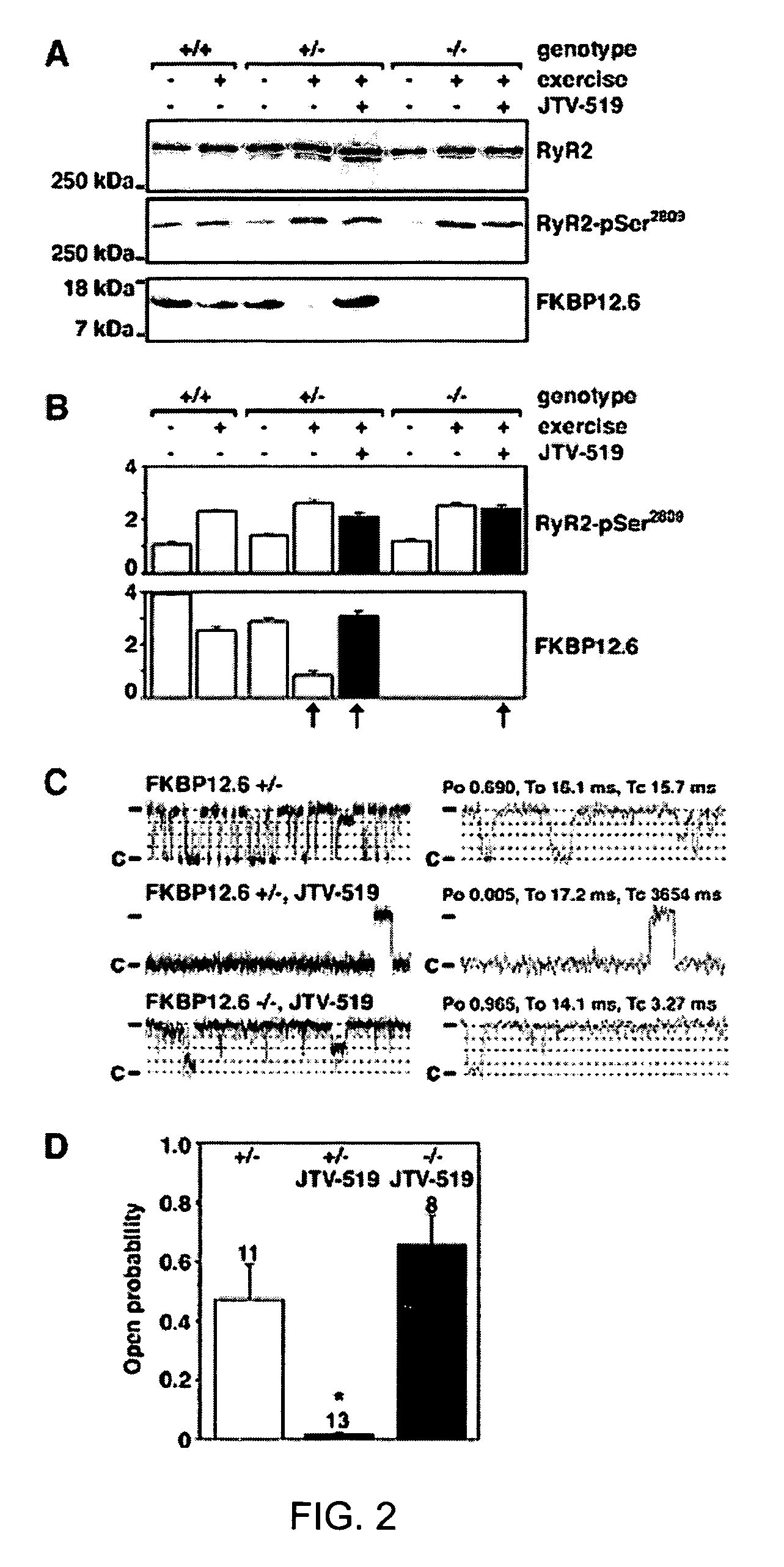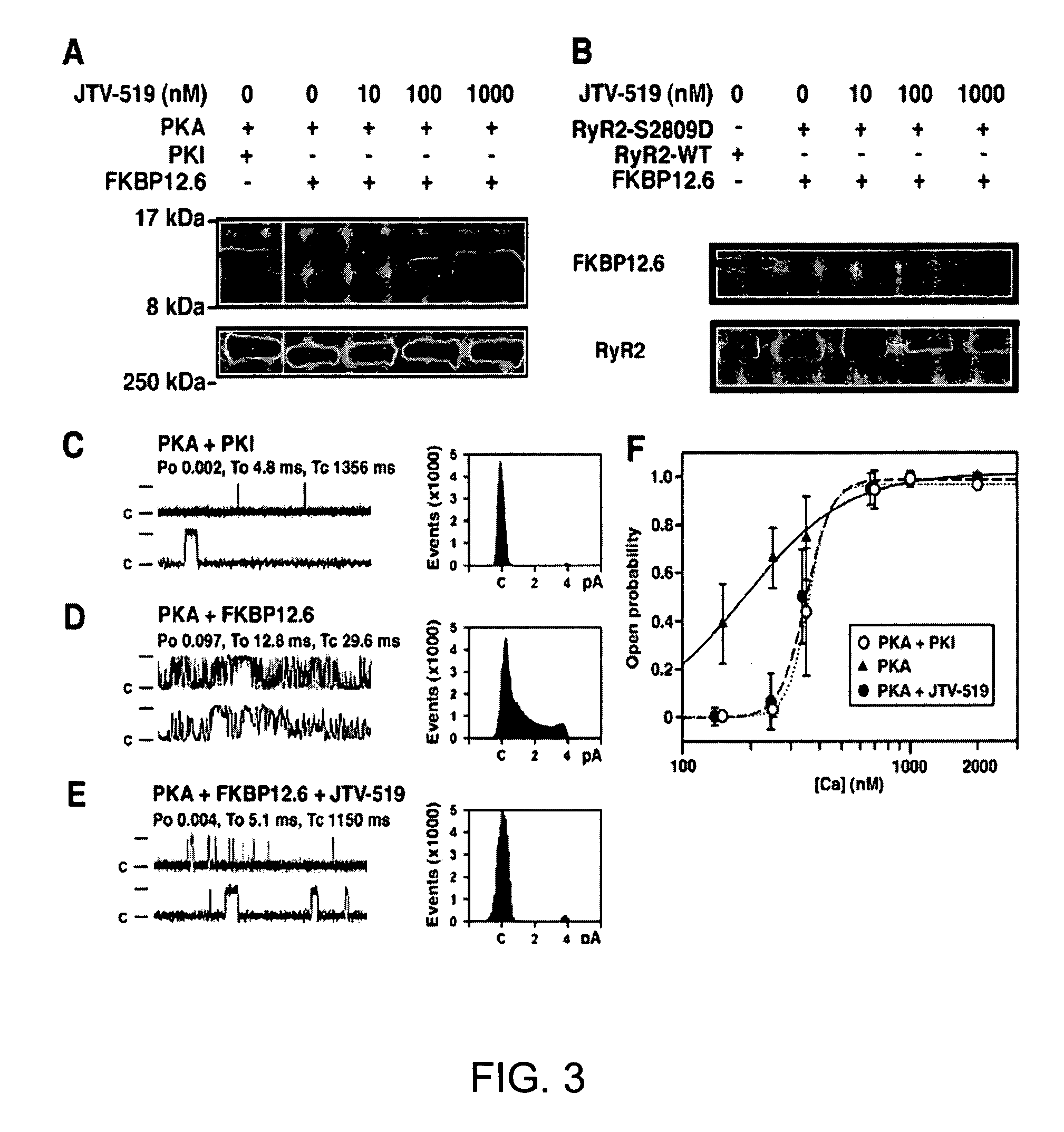Methods for identifying a chemical compound that directly enhances binding of FKBP12.6 to PKA-phosphorylated type 2 ryanodine receptor (RyR2)
a technology of ryanodine receptor and fkbp12.6 is applied in the field of identifying a chemical compound that directly enhances the binding of fkbp12.6 to pka-phosphorylated type 2 ryanodine receptor (ryr2), which can solve the problem of calcium leakage channels, and achieve the effect of enhancing the binding of ryr2 and fkbp12.6, limiting or preventing a decrease in the level o
- Summary
- Abstract
- Description
- Claims
- Application Information
AI Technical Summary
Problems solved by technology
Method used
Image
Examples
example 1
FKBP12.6-Deficient Mice
[0207]FKBP12.6-deficient mice were generated, as previously described (Wehrens et al., FKBP12.6 deficiency and defective calcium release channel (ryanodine receptor) function linked to exercise-induced sudden cardiac death. Cell, 113:829-40, 2003). Briefly, mouse genomic λ-phage clones for the murine orthologue of the human FK506 binding protein 12.6 (FKBP12.6) were isolated from a DBA / 1lacJ library, using a full-length murine cDNA probe. The targeting vector was designed to delete exons 3 and 4, which contain the entire coding sequences for murine FKBP12.6 (Bennett et al., Identification and characterization of the murine FK506 binding protein (FKBP) 12.6 gene. Mamm. Genome, 9:1069-71, 1998), by replacing 3.5 kb of murine genomic DNA with a PGK-neo selectable marker. A 5.0-kb 5′ fragment and a 1.9-kb 3′ fragment were cloned into pJNS2, a backbone vector with PGK-neo and PGK-TK cassettes. The DBA / lacJ embryonic stem (ES) cells were grown and transfected, using...
example 2
Telemetry Recording and Exercise Testing in Mice
[0209]FKBP12.6+ / + and FKBP12.6− / − mice were maintained and studied according to protocols approved by the Institutional Animal Care and Use Committee of Columbia University. Mice were anaesthetized using 2.5% isoflurane inhalation anesthesia. ECG radiotelemetry recordings of ambulatory animals were obtained >7 days after intraperitoneal implantation (Data Sciences International, St. Paul, Minn.) (Wehrens et al., FKBP12.6 deficiency and defective calcium release channel (ryanodine receptor) function linked to exercise-induced sudden cardiac death. Cell, 113:829-40, 2003). For stress tests, mice were exercised on an inclined treadmill until exhaustion, and then intraperitoneally injected with epinephrine (0.5-2.0 mg / kg) (Wehrens et al., FKBP12.6 deficiency and defective calcium release channel (ryanodine receptor) function linked to exercise-induced sudden cardiac death. Cell, 113:829-40, 2003). Resting heart rates of ambulatory animals ...
example 3
Expression of Wild-Type and RyR2-S2809D Mutants
[0210]Mutagenesis of the PKA target site on RyR2 (RyR2-S2809D) was performed, as previously described (Wehrens et al., FKBP12.6 deficiency and defective calcium release channel (ryanodine receptor) function linked to exercise-induced sudden cardiac death. Cell, 113:829-40, 2003). HEK293 cells were co-transfected with 20 μg of RyR2 wild-type (WT) or mutant cDNA, and with 5 μg of FKBP12.6 cDNA, using Ca2+ phosphate precipitation. Vesicles containing RyR2 channels were prepared, as previously described (Wehrens et al., FKBP12.6 deficiency and defective calcium release channel (ryanodine receptor) function linked to exercise-induced sudden cardiac death. Cell, 113:829-40, 2003).
PUM
| Property | Measurement | Unit |
|---|---|---|
| time | aaaaa | aaaaa |
| time | aaaaa | aaaaa |
| membrane potential | aaaaa | aaaaa |
Abstract
Description
Claims
Application Information
 Login to View More
Login to View More - R&D
- Intellectual Property
- Life Sciences
- Materials
- Tech Scout
- Unparalleled Data Quality
- Higher Quality Content
- 60% Fewer Hallucinations
Browse by: Latest US Patents, China's latest patents, Technical Efficacy Thesaurus, Application Domain, Technology Topic, Popular Technical Reports.
© 2025 PatSnap. All rights reserved.Legal|Privacy policy|Modern Slavery Act Transparency Statement|Sitemap|About US| Contact US: help@patsnap.com



